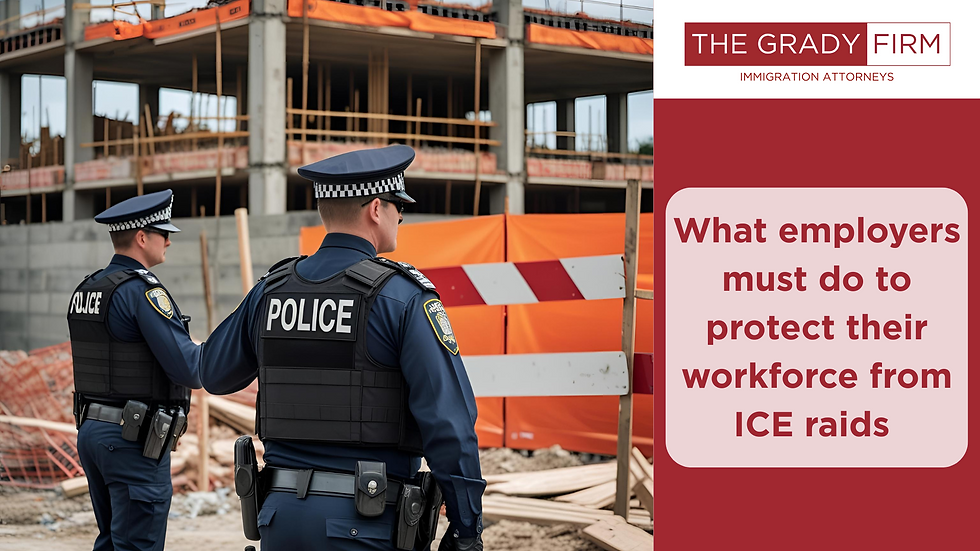What employers must do to protect their workforce from ICE raids
- Jennifer Grady

- Aug 11, 2025
- 2 min read

I recently trained 272 employers on what to do if ICE shows up at their workplace. The most common question wasn't about compliance or paperwork. It was, "what if they detain my employee in the field where I can't help them?"
This reveals what employers are really worried about - not just office raids, but scenarios where they're powerless to intervene.
For landscapers, construction crews, delivery drivers, and field workers, this is a legitimate concern. The employer can't physically be present to help navigate these encounters.
My recommendation? Preparation is key:
- Provide employees with cards stating their Constitutional rights (in English and their native language). These include the right to remain silent and to request an attorney, and can be given to the law enforcement officer to prevent self-incrimination.
- Have employees memorize essential phone numbers - in detention, they may not have access to their phones, and may only get one phone call.
- Create a clear "first call" plan - often this means contacting a spouse first, who can then alert the employer to the detention.
- Become familiar with Legal Aid and pro bono law centers in your area.
- Have a list of potential detention centers to contact in the event your employees go missing during a shift.
Lately, we have been hearing rumors that arrests, seizures, and deportation are occurring without due process. While it's difficult to advise on legal procedures if the rules aren't being properly followed, for employers, this doesn't mean giving up.
It means being even more vigilant about:
- Ensuring all employees with current or former immigration cases update their mailing addresses with USCIS within 10 days of moving (not doing so can lead to deportation!)
- Encouraging visa/green card holders to consider advancing to the next immigration level when eligible (i.e. visa > Green Card > citizenship).
- Starting visa renewals 6 months BEFORE the expiration date to avoid work disruptions.
After practicing immigration law through multiple administrations, what remains constant is this: the best protection against uncertainty is preparation. My goal isn't to amplify fear, but to encourage proactive planning. Times of change require clear-headed preparation, not panic.
If you need more help to prepare yourself and protect your workforce from these ICE raids, call (949) 940-6725, or book a consultation online to speak with one of our experienced immigration attorneys.
DISCLAIMER: This post does not constitute legal advice, or make any guarantees as to a potential outcome. Consult with a qualified, licensed immigration attorney about the facts of your case before proceeding.




Comments